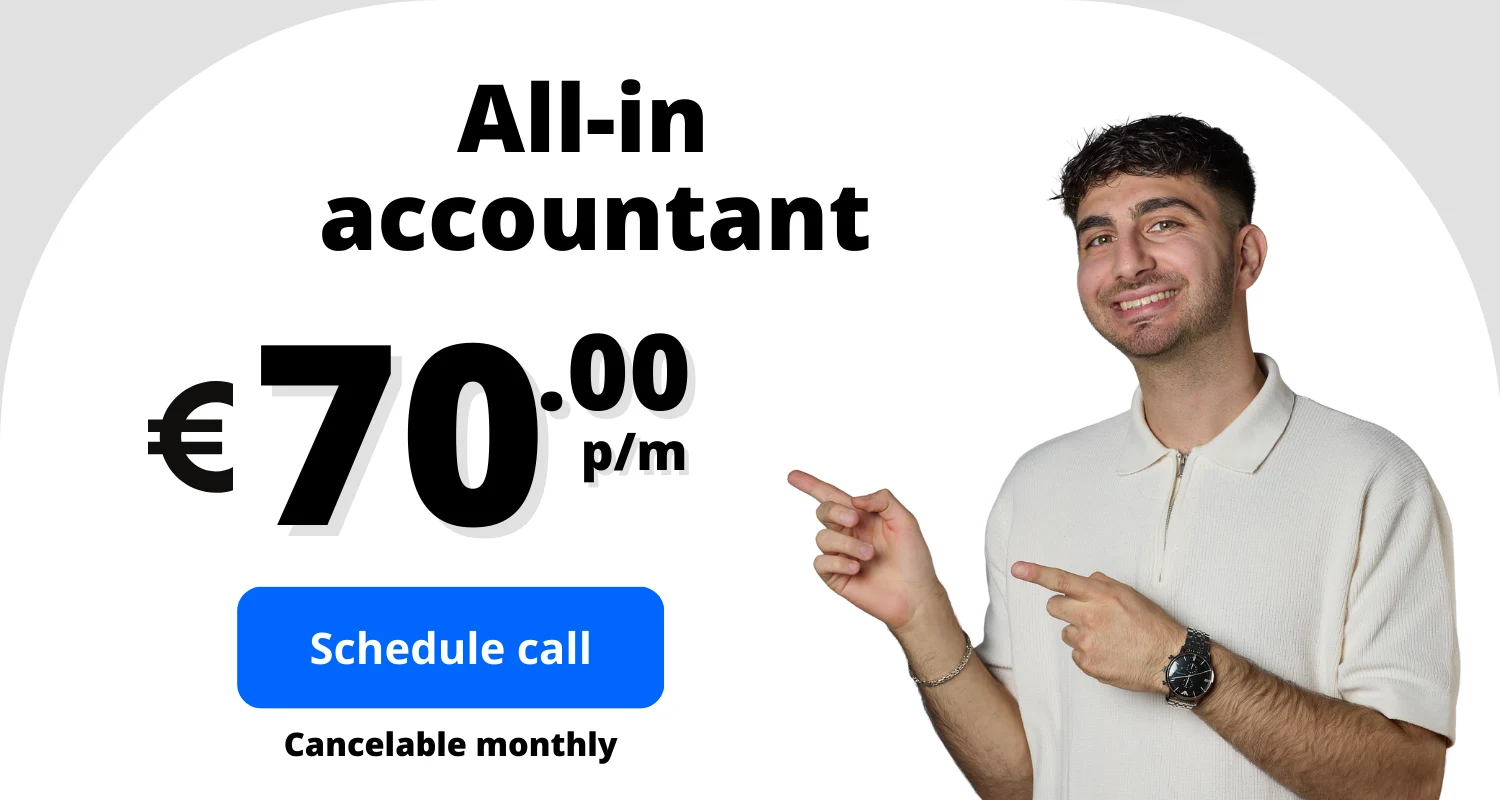What is disability insurance?
An AOV is insurance that pays out when you are no longer able to work in your profession due to illness, an accident or long-term disability. For employees, there is salary continuation or social security, but as a self-employed person, this automatic cover is missing. With an AOV, you choose in advance how much you want to be insured, how long the benefit runs and after which waiting period the payment starts. In this way, you reduce the risk of being left without income in case of incapacity for work.
Why take out an AOV as a self-employed person?
As a self-employed person, you are your own safety net. Without insurance, financial reserves quickly run out or fixed expenses fall away. Many self-employed people have made insufficient provisions, while long-term disability is more common than you think. With an AOV, you are in a stronger position: you avoid having to shut down your business or becoming completely dependent on savings or welfare.
Advantages and disadvantages
Here is a brief overview of the main pluses and minuses of an AOV, so you can better assess whether it is for you.
Advantages:
- Financial security when illness or an accident prevents you from working.
- Ability to decide how much you want to be insured and up to what age.
- Premium is tax-deductible, making the net cost lower.
- Guidance on recovery or reintegration often present, helping you get active again faster.
- Your family or household need not immediately dive into distress to absorb your lost income.
Disadvantages:
- You pay monthly premiums even if you never become incapacitated.
- The insurer determines if and when you are incapacitated; an examination is normal.
- The premium increases with age or risky work; getting in younger pays off.
- You must complete a health declaration in advance; pre-existing conditions may lead to exclusion or higher premium.
- A waiting period means you take care of the initial period in case of incapacity for work yourself before benefits start.
What is and is not insured?
An AOV usually pays out if you can no longer do your own work due to illness or accident. Short-term disability is often outside the cover because of the waiting period. Certain conditions may be excluded or require extra premium.
Is an AOV mandatory
Disability insurance is not yet mandatory for self-employed people. The government is working on statutory basic insurance, but it will only be introduced in the next few years, probably in 2030. Until then, you decide whether and how you want to insure yourself against disability. Many self-employed people already opt for an AOV, bread fund or combination thereof to avoid falling without income in case of illness.
Cost of disability insurance for self-employed workers
The premium for disability insurance (AOV) depends on your occupation, age, health, the sum insured and the waiting period; someone with physical work usually pays more than someone with an office job. On average, self-employed people spend between 3% and 8% of their income on premiums. With an annual income of €50,000, this equates to a premium of around €150 to €350 gross per month, depending on the cover and conditions chosen, and after tax deductions, you often pay between €100 and €250 net per month. You can reduce the premium by choosing a longer waiting period or insuring a lower benefit, but make sure you have sufficient financial buffer to cover that period.
Compare disability insurance (costs)
When comparing AOVs, look not only at the premium but also at coverage, waiting time and conditions. Below you will find an overview of well-known providers in the Netherlands. This way, you can see the differences at a glance and can easily request quotes for your situation.
Provider | Target premium per month (indication) | Waiting time | Coverage up to | Details |
Allianz | €250 - €350 | 3 months | Retirement age | Broad coverage, fixed premium option |
a.s.r. | €220 - €340 | 3 or 6 months | 67 years | Aimed at sole traders, flexible tenure |
Central Management | €200 - €320 | 3 or 6 months | Retirement age | Simple online application |
Movir | €275 - €375 | 2 or 3 months | 67 years | Specialist in medical professions |
Cloverleaf | €180 - €290 | 3 or 6 months | 65 years | Affordable basic cover |
Nationale-Nederlanden | €230 - €360 | 3 months | 67 years | Flexibly adjustable coverage |
Reaal | €190 - €310 | 6 months | 65 years | Basic option for starters |
Loyalis | €210 - €330 | 3 or 6 months | 67 years | Focused on self-employment, flexible choices |
Insify | €150 - €280 | 1 or 3 months | 67 years | Quick online closing, digital focus |
Avéro Achmea | €240 - €370 | 3 months | 67 years | Customised AOV with prevention programmes |
Premiums and options vary by occupation, age, health and coverage chosen. Get quotes for your specific situation.
Cheapest disability insurance
If you mainly want a low premium, choose a longer waiting period and a lower insured amount. A waiting period of six to 12 months saves a lot in costs, but you have to be able to bridge that period yourself. A combination with a mutual fund can be advantageous for the first few years.
Best disability insurance
The best AOV is the one that suits your situation. Look beyond the premium and pay particular attention to the conditions and the disability criterion. If you have a high-risk profession or medical history, a policy with wider coverage or the voluntary insurance of the UWV may be a better choice.
Premium deductible
A nice benefit of the premium is that you can deduct it on income tax as an expense for income provisions. This reduces your taxable income and you effectively pay less. This scheme applies to AOVs that offer periodic payments in case of disability. Thanks to this tax deduction, your net premium is often about 35 to 45 per cent lower than the gross premium. Make sure you keep the premiums paid and enter them in your tax return.
Brood fund
Besides disability insurance, many self-employed people choose a bread fund as a safety net in case of illness. A bread fund is a collective of 20 to 50 self-employed people who support each other financially when someone is temporarily unable to work. Each member deposits money monthly into their own account and receives donations from the others in case of illness for up to two years. There is no medical examination and the money remains your own. Costs are lower than with an AOV, but the coverage is shorter. Many self-employed people combine both: the bread fund for the initial period and the AOV for long-term outages.
Frequently Asked Questions
What does disability insurance for the self-employed cost?
The premium varies widely. On average, you pay around €100to €350 per month, depending on occupation, age and coverage.
Which AOV is best for self-employed workers?
It depends on your situation. Compare different providers on premium, coverage and conditions, pay attention to the definition of disability and choose something that suits your occupation, income and risk profile.
As a self-employed person, can I receive benefits if I am disabled?
Only if you have made prior provision through an AOV or other safety net. Without insurance, you have no automatic right to benefits and will depend on your savings or, in extreme cases, welfare.





